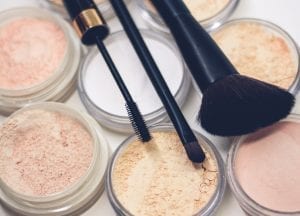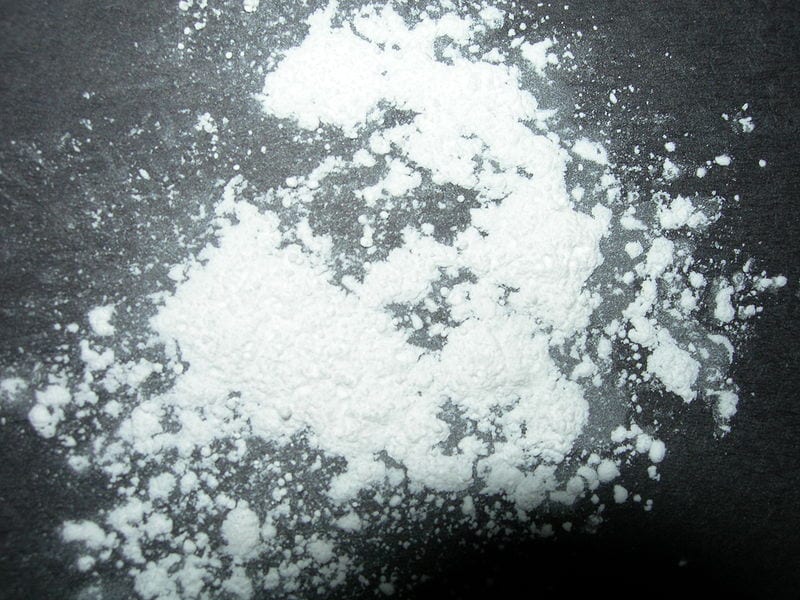Nearly a quarter (24%) of women have used talc products daily or weekly, with over a quarter (29%) regularly using them on their children—61% express deep concern about the long-term health impact.
Austin, TX — A new national survey of U.S. women shows alarming levels of asbestos risk from everyday consumer talc-based products, highlighting the need for regular gynecological tests to help with early detection of asbestos-related cancers such as mesothelioma. Commissioned by asbestos awareness advocacy firm AsbestosClaims.law, a division of The Law Offices of Justinian C. Lane, Esq., the survey reveals that nearly one-third (32%) of respondents were unaware that popular items, including Johnson & Johnson baby powder, could potentially contain asbestos—a known cancer causing carcinogen.
The findings reveal a potential health crisis, with 72% of respondents—24% of whom used talc-based products daily or weekly—reporting they had never seen warning labels about asbestos contamination. Additionally, 55% of those who used talc-based products daily have applied them just as frequently to their children, and 25% of these consumers were unaware they could be exposing themselves or their children to cancer-causing asbestos.
Additional key findings from the research include:
Health Concerns Drive Consumer Behavior Shift
Heightened awareness of these risks is prompting significant changes in consumer habits. The survey found that 44% of women have stopped purchasing talc-based products altogether, citing health concerns for both themselves and their children, while 22% have reduced their use. This shift reflects a growing distrust in product safety, especially as more information surfaces about asbestos contamination in personal household goods including makeup.
Trust Slips as Women Turn Away from Talc Manufacturers
The survey also underscores a serious challenge for talc product manufacturers like Johnson & Johnson: regaining consumer trust. Two-thirds (66%) of women indicated they no longer trust manufacturers of talc products, with 32% reporting they have “completely” lost confidence in these brands. As lawsuits and health warnings related to asbestos in talc products continue to dominate headlines, the demand for corporate transparency has never been greater. Alarmingly, only 5% of respondents said they fully trust manufacturers’ claims that their talc products are safe.
No Longer Just an Industrial Concern, Asbestos Moves to the Mainstream
“The industrial hazards associated with asbestos are well documented, but the threat to women and children from products like talc powder and makeup is just starting to emerge,” said Justinian C. Lane, Founder of AsbestosClaims.law. “Given the long latency of asbestos-related cancers like mesothelioma—and a recent CDC report highlighting a rise in cases among women—millions could be unknowingly at risk. Consumers need to stay informed, push for transparency, and protect their health.”
The survey revealed that 61% of respondents are “extremely” or “very concerned” about the long-term health impact of asbestos-contaminated talc. Gen X (37%) and Millennial women (36%) expressed the highest levels of concern, outpacing Boomers (27%) and Gen Z (34%). Notably, talc product usage is higher among Black women (31%) and Asians (35%) compared to Whites (20%) and Hispanics (29%), highlighting the need for increased awareness and vigilance within these communities.
Women Demand Corporate Accountability
Nearly half (46%) of respondents believe that brands should bear more responsibility for educating consumers about the risks of asbestos in talc products, while only 8% think the government should take on this role. This underscores the growing demand for corporate leadership on consumer safety. However, Millennials and Gen Z respondents indicated a stronger belief that the government should play a more significant role in sharing responsibility for consumer protection.

The survey also revealed that legal actions against talc product manufacturers have severely diminished consumers’ trust of manufacturers and their claims, with 66% of respondents reporting a negative view of the manufacturers. As lawsuits continue to unfold, the urgent need for testing for the presence of asbestos and diligence regarding gynecological exams which can help with early detection of cancers such as mesothelioma is more important than ever.
About the Talc and Asbestos Awareness Study
This online survey of 1,077 U.S. women aged 18+ was fielded from August 28 to September 5, 2024 by market-research firm Researchscape. The credibility interval for questions answered by all respondents is plus or minus 4 percentage points. For more information about the survey and its findings, or to learn more about legal rights regarding asbestos and talc contamination, visit AsbestosClaims.law.
About The Law Offices of Justinian C. Lane, Esq. – PLLC
Justinian C. Lane founded his firm in 2014 to help individuals who have been harmed by asbestos get rightful compensation for injuries. The firm is built around a foundational understanding of the structure and guidelines set up by the courts in establishing asbestos trusts intended to compensate individuals and their families who were exposed to asbestos on the job or in the home. The firm can be found online at www.asbestosclaims.law.


Join the conversation!